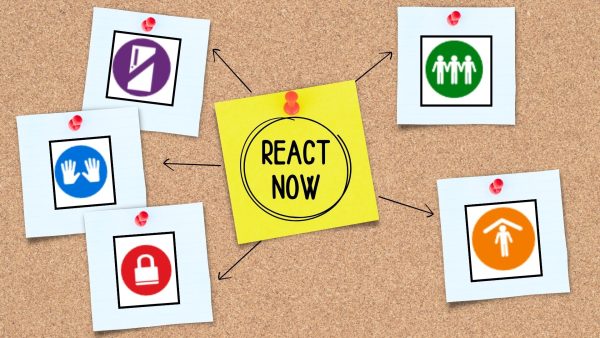Tumblr isn’t your average blogging website
When you think of online youth subculture you often imagine a mindless waste of time. It is mostly true of places such as Facebook and Twitter, social networks where the most popular things to do are look at other peoples’ posts, like pages, play games and search hashtags. Although you can also waste a lot of time on Tumblr, there are more meaningful things that appear on Tumblr that don’t appear on other social networking websites.
Tumblr is extremely liberal and many different types of activism can be found, such as third-wave feminism, LGBT rights and political activism. Along with it’s activism-centered themes, there is also art, “fandom,” photography, personal, private, literary and many other types of blogs.
Tumblr, (logo stylized as “tumblr.”) is a microblogging and social networking website that has transcended anything done before in the blogging world. Created in 2006 by David Karp, it is now owned by Yahoo! Incorporated. Tumblr’s unique platform consists of a dashboard interface where the blogs’ posts that users “follow” can be read, reblogged and liked. Users can also post their own content that appears on their followers’ dashboards.
When asked to describe Tumblr, the average blogger probably wouldn’t give a very specific answer. It means something different to everyone who is on it. To some, it’s an escape. To others, it’s where people they can relate to are located. To most, it’s an extremely addictive website that drains away hours at a time.
The positives of Tumblr are that users can connect with people across the globe, express opinions, find users with similar interests and learn about different types of activism. The negatives are that people can send you anonymous messages saying nasty things (something that has been plaguing Tumblr for a long time) and Tumblr can cause users to procrastinate.
Tumblr users can also be very opinionated and can be easily offended. Users claim to be accepting of every opinion but in reality they only agree with opinions similar to their own. Users can also be self-absorbed. If they see a post that reminds them of their “fandom,” they will add something from their fandom to the post and then reblog it. In come circumstances, this goes completely against what the original creator of the post intended.
My experience on Tumblr has been a largely positive one. I run four different blogs, including one dedicated to the band Florence + The Machine, a personal blog and an aesthetics blog. The Florence + The Machine blog has the most followers, which suggests that users like blogs that are specific to their interests, rather than multifaceted.
I have never received an angry or rude message on Tumblr and my overall experience has been positive. It’s really easy to talk to people on Tumblr, you can send users messages while maintaining your anonymity. I follow and unfollow people at my leisure. If someone posts something that I don’t agree with, I usually wait for a few more posts similar to the first one to unfollow them.
Overall, Tumblr is a community, or rather a collection of communities that make up a greater website. Interests connect people. Most users find blogs that post their interests and follow them. There is no limit to the amount of blogs you can follow, or the amount of followers you have. It’s worn as a badge of honor if you have more than 10,000 followers, which is called being “Tumblr Famous.”
Tumblr is unique because it’s customized to what the user wants to see. They choose who they want to follow, block tags that users don’t want to see, install Google Chrome apps that customize the look of the dashboard, design their blog’s HTML and even run multiple blogs at once with the same account.
Although Tumblr is unique to its audience, and seems to be quite popular, eventually it will probably head down the routes of other popular social networking sites, such as Facebook and MySpace. Something newer and cooler will emerge, and people will stop posting. The website will be another graveyard, with only 20,000 “active” users, as opposed to Tumblr’s current 300 million users. Only time will tell how long it will take the popular blogging platform to fall.
Your donation will support the student journalists of West Linn High School. Your contribution will allow us to continue to produce quality content by purchasing equipment, software, and continuing to host our website on School Newspapers Online (SNO).

Riding on her galloping horse at Stafford Hills Equitation, Meredith Bowers, junior, enjoys spending her free time at the stables. Bowers has...

























![Game, set, and match. Corbin Atchley, sophomore, high fives Sanam Sidhu, freshman, after a rally with other club members. “I just joined [the club],” Sidhu said. “[I heard about it] on Instagram, they always post about it, I’ve been wanting to come. My parents used to play [net sports] too and they taught us, and then I learned from my brother.”](https://wlhsnow.com/wp-content/uploads/2024/03/MG_7715-2-1200x800.jpg)
![At the bottom of the third inning, the Lions are still scoreless. Rowe stands at home plate, preparing to bat, while Vandenbrink stands off to the side as the next batter up. Despite having the bases loaded, the team was unable to score any runs. “It’s just the beginning of the season. We’re just going to be playing out best by June, [and] that’s where champions are,” Rowe said.](https://wlhsnow.com/wp-content/uploads/2024/03/IMG_3077-1200x900.jpg)





![The teams prepare to start another play with just a few minutes left in the first half. The Lions were in the lead at halftime with a score of 27-0. At half time, the team went back to the locker rooms. “[We ate] orange slices,” Malos said. “[Then] our team came out and got the win.”](https://wlhsnow.com/wp-content/uploads/2023/10/IMG_2385-1200x800.jpg)
















































































